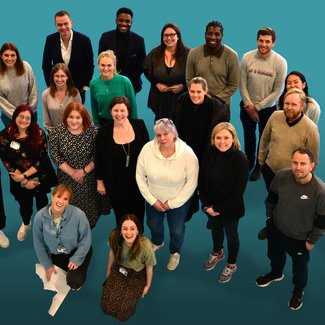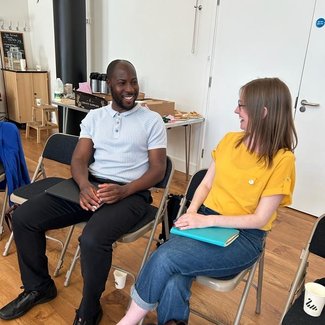Any education leader will tell you that effecting change is easier said than done. Today, prescribed ‘leadership skills’ aren’t necessarily enough to create the visionary leaders we so badly need. Fortunately, over the past two years, I have been lucky enough to participate in a unique professional development programme offered by Big Education. Unlike traditional training, the Big Leadership Adventure (BLA) focuses not on certifying predetermined leadership skills but on encouraging self-reflection so leaders can challenge themselves – and the status quo – while embracing innovative educational approaches.
Kicking off: A three-day residency
The BLA’s application process is rigorous, requiring deep reflection and self-evaluation. As a result, the programme is highly regarded among education professionals and attending the initial three-day residency felt like the first day of school! Being surrounded by such a diversity of talent was humbling. Everyone was filled with nervous excitement. Our 40-strong cohort included school leaders, like me, but also teachers, policymakers, and non-practitioner educationalists. It showed me from the start that this was no ‘one size fits all’ leadership programme.
We were soon placed into basecamps of six individuals – our support network for the next two years – and invited to define our values. Crucially, we were not coming at this from a professional perspective but from a personal one. Transcending the boundaries of role and institution was exposing yet powerful. Laying our values bare connected us quickly, fostering trust in our team from the word go. Standing beside a flipchart, we had to evaluate one another, too.

This was also challenging. But two years later, I still have their insights written down, keeping me focused on my improvement areas both as an individual and as a leader for my school, our young people and our community.
Adopting leadership tools and strategies
During the residency, we were introduced to the BLA’s core principles for transformative leadership, collectively known as the ‘Big 8’. I won’t divulge their trade secrets, but these are essential tools and strategies centred on things like connection and catalytic conversation. The programme is very coaching-led – rather than imposing ideas on us, it encourages each person to lean into their strengths and improve leadership approaches in their specific context.

The foundations laid during the residency paved the way for the next two years, during which we further explored and implemented the Big 8. Through a combination of workshops, we learned how to build meaningful relationships, ask thought-provoking questions, and engage in intentional dialogues around various topics. One transformative workshop for me was on equity, diversity, and inclusion (EDI). It provided me with greater awareness of EDI needs, moving beyond mere compliance towards thinking with intentionality about the impact that even small leadership choices can have on young people from various backgrounds.
During these workshops, we also explored various educational models and global best practices, challenging ingrained ideas and rethinking how we can support and empower students. Seeing such inspiring work from around the globe has opened our minds to new possibilities, emboldening us to push boundaries within our roles.
Building a community of practice
Probably the most inspirational aspect of the programme, though, is the connections I’ve forged. My new colleagues and I have all become much more courageous, confident and intentional in our pursuit of change. We regularly connect, and I know we will continue to support and learn from each other long after the programme ends.
UTC South Durham, where I am Deputy Principal, is already on a transformative journey. Some might wonder, then, why I took this opportunity. Initially, I’ll admit, it was to validate our efforts at UTC South Durham and to connect with others with a shared vision. It’s easy in education to focus on your patch – there's always so much to do! But the BLA has reminded me we are not alone in our endeavours. Despite challenging government policies and expectations from Ofsted, there is incredible transformative work happening across the educational community in this country.


More importantly, though, the programme has been hugely validating for me, personally. My whole leadership team aims to be nurturing and aspirational, supportive but with high expectations. We talk to our young people like the humans they are, something that’s often lost in education. The perception of education leadership is often quite hard-nosed and this can almost feel like pressure. I’m also a deputy principal who is not a teacher, which is fairly unusual.
However, the programme has helped me realise that being an empathetic leader is not just acceptable – it is an asset. It has also taught me that not being a qualified teacher has no impact on my passion for transforming education, or my ability to enact change. This has been endlessly reassuring, and I know everyone on the programme has taken something equally unique and personal from it. And that’s the point – the BLA was designed this way.
The Big Leadership Adventure may not be a training programme in the classic sense. You won’t come away with a qualification. But it is a catalyst for sustainable change and a platform where passionate educationalists – whatever their background or seniority – can collaborate to challenge norms, create lifelong support networks, improve themselves as people, and impact their institutions for the better. And that’s far more valuable than any piece of paper could ever be. I can’t recommend it enough!
Catherine Purvis-Mawson is Deputy Principal at UTC South Durham. Her place on the Big Leadership Adventure was sponsored by The Edge Foundation.
